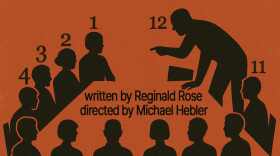MELISSA BLOCK, host:
It's been two days since Hurricane Wilma crossed southern Florida, and already many people there are frustrated and angry at the pace of the government's response. Thousands spent today in line waiting for ice, water and food. Millions more are waiting for the lights to come back on. NPR's Phillip Davis spent the day on the streets of Broward County. Here's his report.
PHILLIP DAVIS reporting:
Power is still out in most of Broward County, and so when word spread that ice would be distributed at several locations, Anna Diangelilo(ph) jumped right into her car and drove into a wall of frustration.
Ms. ANNA DIANGELILO: We went to Oakwood Plaza. We went to Tamiami Park or--we went to T.Y. Park in Hollywood--all in Hollywood. Everywhere we went, they had just, `Stay in line. No, you got to go this way. You got to go that way,' wasting our gas. And when we got there, `They're not here. They'll be here tomorrow.'
DAVIS: She finally ended up outside the big, white Hollywood greyhound track at the front of a three-block-long line. By 8 AM, though, officials had already run out of ice, but they promised more would be delivered at 11 AM. So Anna and the rest settled down to wait but not without some tension when one family tried to cut to the front of the line.
(Soundbite of argument)
Unidentified Man #1: ...front of the line right here.
Unidentified Woman #1: Over two, over two.
Unidentified Man #1: Two, two and a half hours. Y'all know it ain't right. Y'all wouldn't want it.
Unidentified Woman #2: It doesn't matter to us. We're just here for the water.
Unidentified Man #1: Y'all wouldn't want nobody to walk up in front of y'all, so why don't y'all just go back to the back of the line?
Unidentified Woman #2: OK. I get it.
DAVIS: Finally, just before noon, seven 18-wheelers, escorted by a police cruiser, suddenly rolled past a delighted crowd.
(Soundbite of siren; clapping)
DAVIS: Though it seemed like ages to the crowd, within about 15 minutes, pallets of ice, water and meals ready to eat had been set out in the parking lot and were being distributed.
(Soundbite of distribution)
Unidentified Man #2: Are we ready?
Unidentified Man #3: Yeah.
Unidentified Man #2: All right. Thank you for waiting and being patient, OK?
Unidentified Woman #3: All right. Yes.
Unidentified Man #2: We're going three at a time, three at a time, all right?
Unidentified Man #4: OK. We're ...(unintelligible).
Unidentified Man #5: Quickly. We gotta move quickly. Let's go.
Unidentified Woman #4: Thank you so much.
Unidentified Woman #5: Thank you very much.
Unidentified Man #6: You're welcome.
Unidentified Woman #6: Thank you.
DAVIS: Hallandale's mayor, Joy Cooper, a trim woman wearing a Hallandale Fire & Rescue polo shirt, said that she was getting minimal advance information from her higher-ups.
Mayor JOY COOPER (Hallandale, Florida): It's been very frustrating. We're just glad it's here, finally. As you can see, a lot of people are just thrilled that, you know, the people are pulling together and making sure that it's here. Regretfully, we don't have that control. You know, that is the county and the state.
DAVIS: She added that nearly a hundred percent of her town was still without power. In fact, the only thing that got a bigger response from the crowd than the ice was when another convoy, a dozen Florida Power & Light repair rigs, rolled past.
(Soundbite of clapping)
Unidentified Woman #7: Hurray for lights!
Unidentified Woman #8: Hurray!
DAVIS: As of this morning, 2.7 million people statewide still had no power. At a big Florida Power & Light staging area nearby, in the parking lot of another racetrack, George Rodriguez was helping dispatch a squad of repair trucks that had come in from Houston. Rodriguez said every feeder line that a truck repaired would turn on the lights for 1,500 people.
Mr. GEORGE RODRIGUEZ: Now it all depends on the conditions out there. There could be a lot of trees. It's very thick brush; there's a lot of trees down, there's a lot of poles. It's going to take some time.
DAVIS: Meanwhile, officials like Governor Jeb Bush admitted that maybe officials were too optimistic about Florida's emergency distribution system.
Governor JEB BUSH (Republican, Florida): The points of distribution is a system that is complex, and it didn't work as well as it should have yesterday. But I've raised the bar probably--maybe too high. I don't know. We're going to find out.
DAVIS: Now it's only been two days since Wilma's passage. In the Gulf states at this point, after Hurricane Katrina, water, ice and power were still days away. Phillip Davis, NPR News, Miami. Transcript provided by NPR, Copyright NPR.








